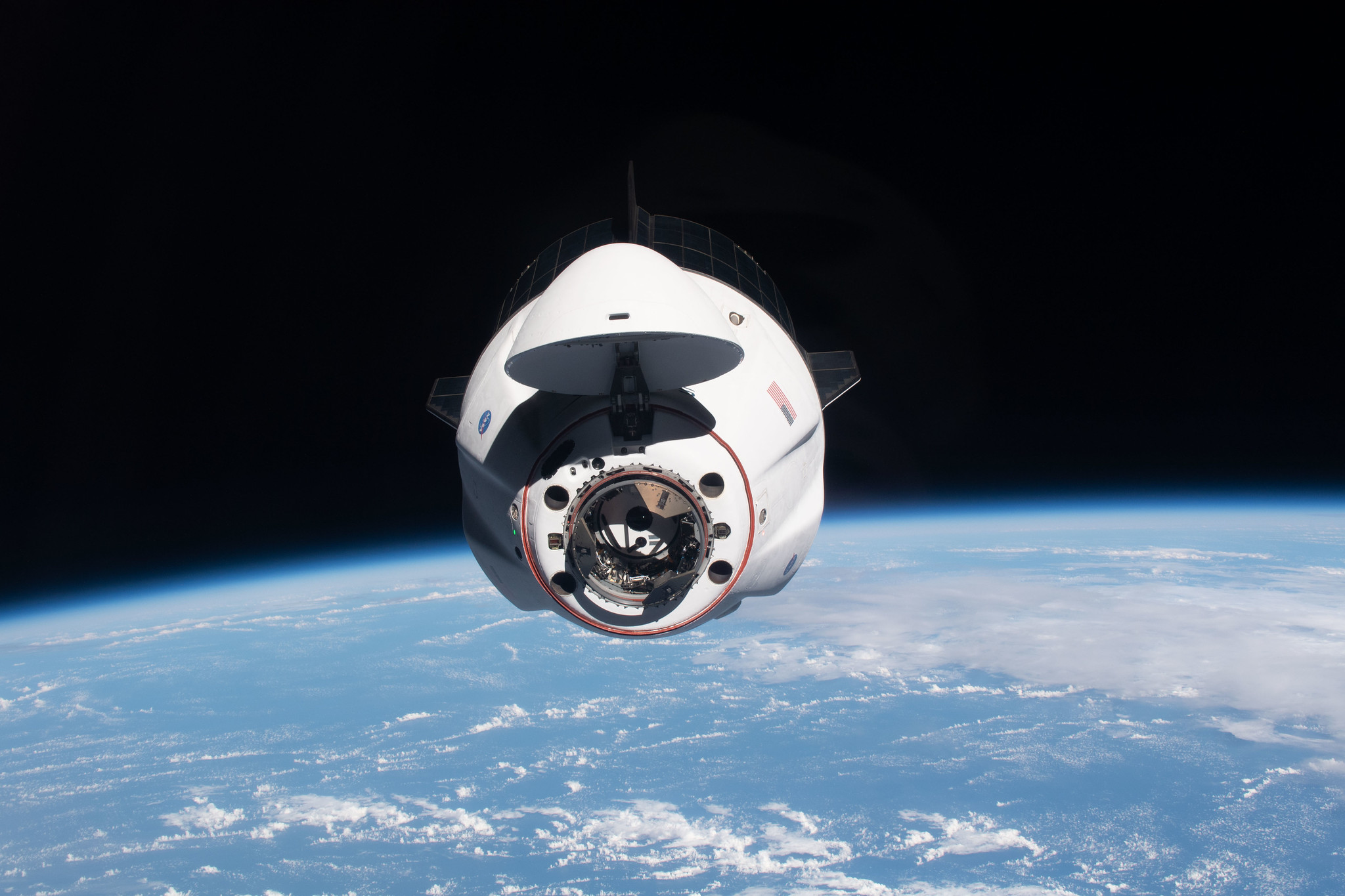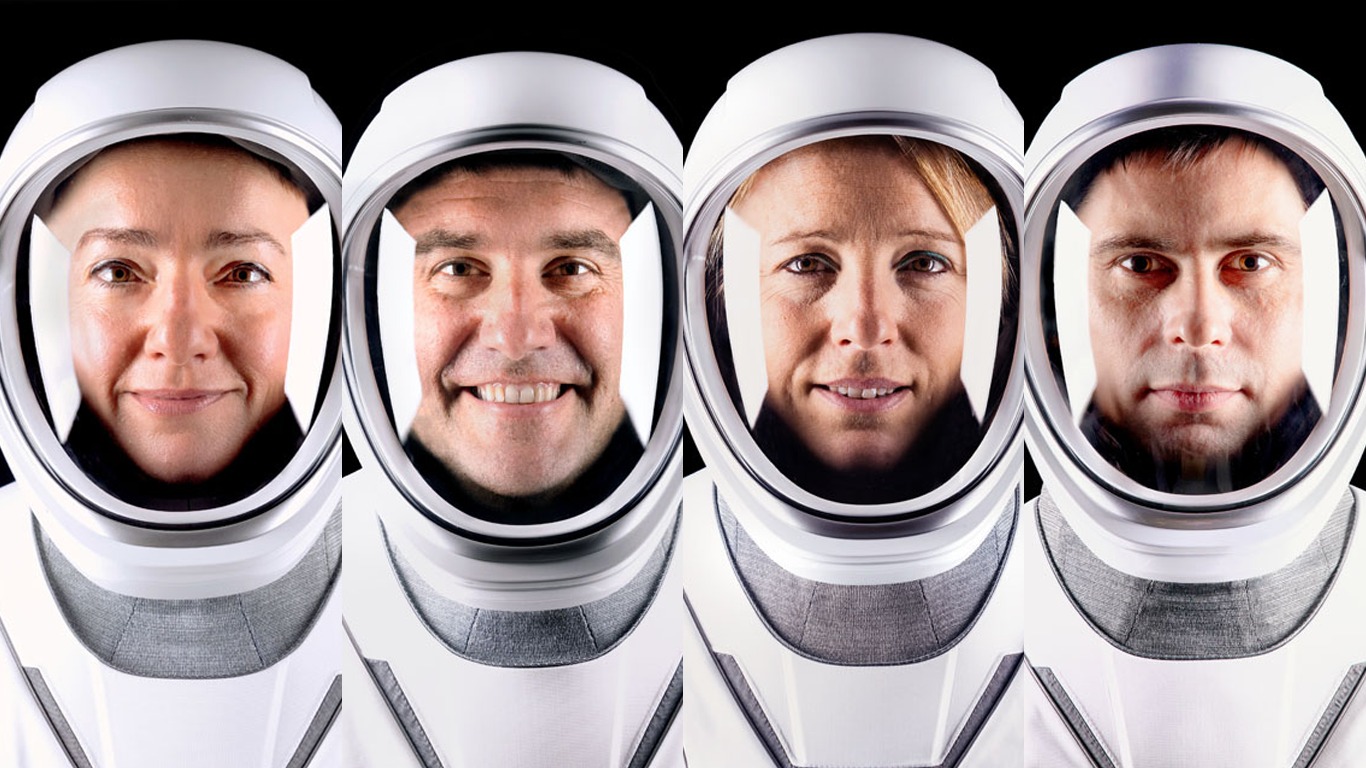Elon Musk's SpaceX now valued at $100 billion: report
SpaceX has apparently become the second-most valuable private company in the world.

SpaceX's valuation has topped $100 billion, making the company even more of a rich rarity in a fast-growing industry.
CNBC reported the valuation earlier this month, basing its story on anonymous sources. (SpaceX is not a publicly traded company, so details of its financing are private, the outlet explained.)
Existing investors sold off enough stock recently, at $560 per share, to push SpaceX's valuation to $100.3 billion, according to CNBC. For perspective, the Biden administration's 2022 budget request allocates $24.7 billion to NASA.
SpaceX's Crew-3 astronaut mission for NASA: Live updates
"SpaceX’s new valuation makes it one of the rare private 'centicorn' or 'hectocorn' companies in the world — a $1 billion unicorn 100 times over," CNBC's Michael Sheetz wrote in the report. "SpaceX is now the second-most valuable private company in the world, according to CB Insights, behind only China's Bytedance and jumping past fintech [financial technology] firm Stripe."
SpaceX's new share price is about 33% higher than it was during SpaceX's last valuation, which occurred in February. Back then, shares were priced at $419.99 apiece and the company was valued at $74 billion, CNBC added.
A lot has happened with SpaceX in the last eight months, which may be contributing to the increased valuation.
Breaking space news, the latest updates on rocket launches, skywatching events and more!
SpaceX's second operational mission to the International Space Station, Crew-2, launched in April, and a third (Crew-3) is expected to launch this weekend. The company also received massive press coverage in September for its Inspiration4 mission, which sent billionaire Jared Isaacman and three other private citizens on a three-day trip to Earth orbit aboard a Crew Dragon capsule.
In addition, NASA selected SpaceX to provide the human landing system for the agency's Artemis moon program in April, although work has been stalled since then due to ongoing disputes from competitor companies, and then a lawsuit. A media report from last week suggested that the U.S. Senate will direct NASA to select a second company to participate in the Artemis human landing contract as well.
SpaceX will fulfill its Artemis contract using Starship, its next-generation deep-space transportation system. The company made another big media splash in May of this year, when a Starship prototype called SN15 aced a high-altitude test flight from South Texas. (SpaceX plans to attempt its first-ever Starship orbital test flight with the prototype SN20 relatively soon, but the company is waiting on approval from the Federal Aviation Administration to do so.)
SpaceX is also continuing to build out its Starlink constellation for broadband service, although the pace of launches has slowed in recent months amid a liquid oxygen shortage induced by the coronavirus pandemic. The company has already launched 1,740 Starlink satellites, but the constellation could eventually swell to include tens of thousands of spacecraft.
Follow Elizabeth Howell on Twitter @howellspace. Follow us on Twitter @Spacedotcom and on Facebook.

Elizabeth Howell (she/her), Ph.D., was a staff writer in the spaceflight channel between 2022 and 2024 specializing in Canadian space news. She was contributing writer for Space.com for 10 years from 2012 to 2024. Elizabeth's reporting includes multiple exclusives with the White House, leading world coverage about a lost-and-found space tomato on the International Space Station, witnessing five human spaceflight launches on two continents, flying parabolic, working inside a spacesuit, and participating in a simulated Mars mission. Her latest book, "Why Am I Taller?" (ECW Press, 2022) is co-written with astronaut Dave Williams.
